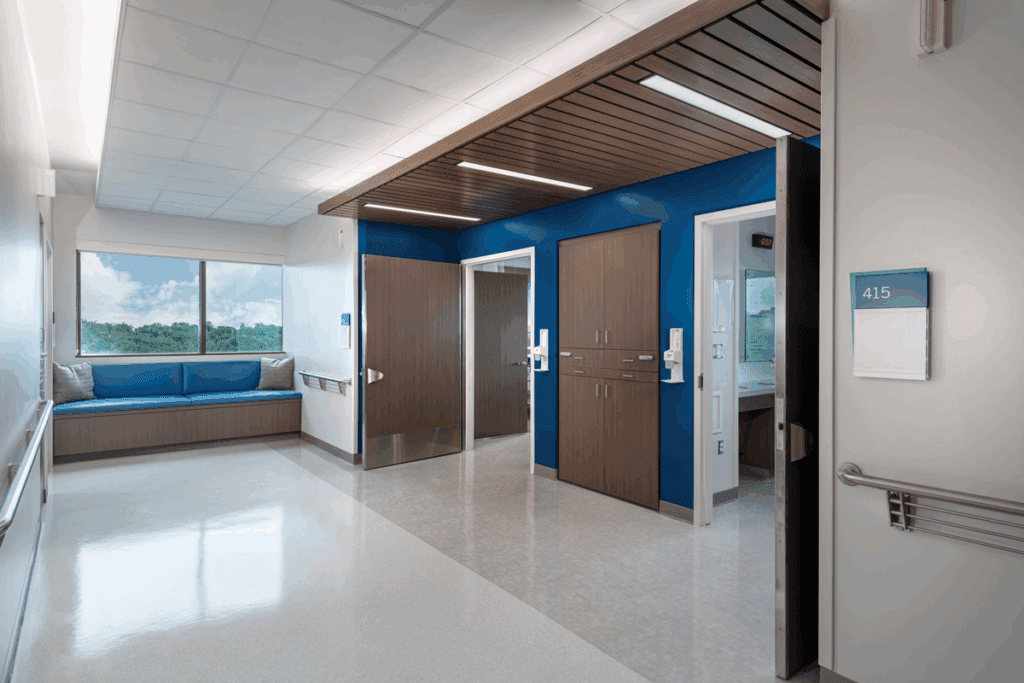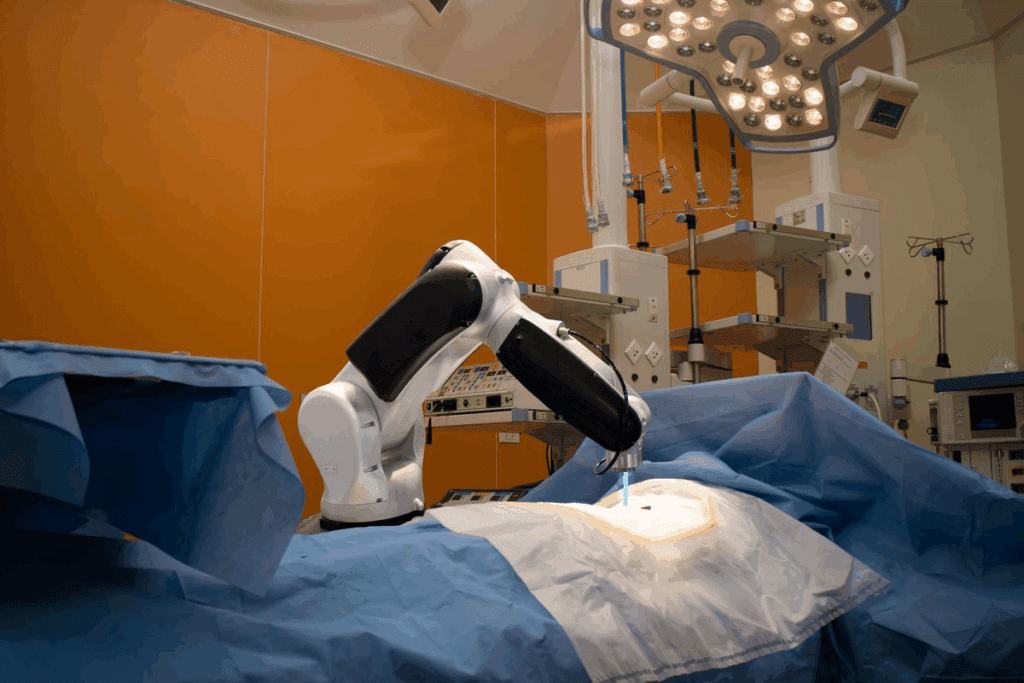Last Updated on October 31, 2025 by

Prostate removal surgery can change a man’s sex life.can you have intercourse after prostateChlamydia Symptoms But No Chlamydia? 5 Hidden Causes Revealed But, with the right steps, recovery is possible. And satisfying sexual function can be regained.
At Liv Hospital, we know how tough it is after prostatectomy. Our sexual health programs cover all aspects of recovery. They help men feel confident again in their sex lives.
It’s key to understand how prostate removal affects sex. With the right help, men can face these challenges. And they can enjoy a fulfilling sex life.
Understanding Prostate Removal Surgery and Its Impact on Sexual Function

It’s important for men to know how radical prostatectomy affects their sexual health. This surgery removes the prostate gland and some nearby tissue. It’s a common treatment for prostate cancer.
Radical prostatectomy is a surgery that removes the prostate gland and some surrounding tissues. This is mainly done to treat prostate cancer. There are a few ways to do this surgery:
The surgery can change sexual anatomy in several ways. Removing the prostate gland and some nerves can affect how a man gets an erection. The impact depends on whether the nerves were saved during surgery.
Nerve-sparing techniques are used to help keep erectile function. But, success can vary. It depends on the patient’s age and the surgeon’s skill.
Men often worry about their sexual health after surgery. Some common worries include:
Understanding these concerns and finding ways to recover and treat them is key.

Knowing the timeline for sexual recovery after prostatectomy helps set realistic healing goals. Each person’s journey is different, but there’s a general pattern.
Right after surgery, doctors tell patients to avoid sex to heal properly. This usually lasts four weeks. During this time, sex drive and ability to get an erection may drop due to surgery damage.
As healing starts, patients can begin to have sex again. But, it’s important to wait for the doctor’s okay. Getting an erection might get better, but it might not be the same as before surgery.
Most of the sexual function recovery happens in the first two years after surgery. Patients often see big improvements in getting an erection, but how much varies.
| Recovery Phase | Timeline | Key Sexual Recovery Milestones |
| Immediate Post-Surgery | 0-4 Weeks | Avoid sexual activity, decreased sexual desire |
| Early Recovery | 1-6 Months | Resume sexual activity, initial erectile function improvement |
| Long-Term Recovery | 6-24 Months | Significant improvement in erectile function |
It’s key to be patient and not rush the healing. Regular check-ups with healthcare providers are vital to track progress and solve any issues.
Many men look forward to having sex again after prostate surgery. How easy it is to do so depends on several things. These include age, health, and the surgery method.
Research shows that erectile issues are common after prostate surgery. But, with the right help and treatment, many men can regain their sexual function.
Studies say that about 50-60% of men can get their erections back within two years after surgery. This is according to a study in the Journal of Urology.
Getting better takes time. Some men see improvements in months or even years after surgery.
“The recovery of erectile function after radical prostatectomy is a complex process involving the restoration of nerve function, improvement in vascular health, and psychological adjustment.” – Medical Expert, Urologist
Age affects how well men recover from prostate surgery. Younger men tend to have better chances of getting their erections back. Older men might face more challenges.
| Age Group | Recovery Rate | Average Recovery Time |
| Less than 55 years | 70-80% | 12-18 months |
| 55-65 years | 50-60% | 18-24 months |
| More than 65 years | 30-40% | 2-3 years |
Several things can affect how well men recover from prostate surgery. These include:
By understanding these factors and working with healthcare providers, men can improve their chances of recovering sexual function after prostate removal.
Physical Changes to Expect in Your Sexual Experience
It’s important to know what physical changes happen after a prostate removal. Men might see changes in their sexual function after surgery. These changes can be hard to get used to.
Dry orgasms are a common change after prostate surgery. This happens because the prostate gland and seminal vesicles are removed. Men may feel like they’re having an orgasm, but they won’t ejaculate.
Here are some key things to know about dry orgasms:
Men might also notice changes in how they feel pleasure after surgery. Some might feel less sensitive, while others might not notice much of a difference. These changes depend on:
It’s key to remember that these changes can be different for everyone.
Some men might feel pain or discomfort during or after sex after prostate surgery. Common problems include:
To deal with these issues, men can:
By understanding these changes and talking to doctors, men can handle their new sexual experience after prostate surgery better.
Prostate removal can affect sexual health. But, many medical options help men regain their sexual function after surgery. We’ll look at these options.
Oral medications, like PDE5 inhibitors, are often the first choice for erectile dysfunction after prostate surgery. They work by boosting nitric oxide, a natural chemical that relaxes penis muscles, improving blood flow.
These drugs help men get and keep erections. But, how well they work can vary.
Injectable therapies are an option for those who don’t respond to oral meds. They involve injecting a drug directly into the penis to cause an erection.
But, they can cause side effects like pain and priapism (long-lasting erection).
Vacuum erection devices (VEDs) are another choice for erectile dysfunction after prostate surgery. They work by creating a vacuum around the penis, drawing blood, and then using a ring to keep the erection.
For some, penile implants are the best choice. These are surgically implanted devices that can be inflated for an erection.
Penile implants offer a lasting solution and can greatly improve life for men with erectile dysfunction.
Talking to a healthcare provider is key to finding the right medical intervention. It depends on your health and what you prefer.
Strengthening the pelvic floor muscles through exercises can greatly improve sexual function after prostate surgery. These exercises, known as Kegels, boost the strength and endurance of muscles that support sexual and urinary functions.
Kegel exercises are simple yet effective. To do a Kegel, find the muscles that stop urine flow. Then, contract and release these muscles over and over. Start with 5-10 repetitions and increase as your muscles get stronger.
It’s important to do Kegels correctly for the best results. Focus on squeezing the muscles around your anus and the base of your penis, holding for a few seconds before releasing. Regular practice can improve bladder control and sexual performance.
Once you’ve got the hang of basic Kegels, you can try more advanced exercises. These might include:
These advanced techniques can further boost muscle strength and sexual function. This can lead to a more satisfying sexual experience.
To get the most from pelvic floor exercises, be consistent. We recommend setting aside time each day to practice your Kegels, ideally in sets of 10-15 repetitions, three to four times a day.
It’s also good to do these exercises during daily activities, like sitting or standing. Being mindful of your pelvic floor muscles during routine tasks can enhance your practice and lead to better outcomes.
By adding pelvic floor exercises to your rehabilitation plan, you can actively improve your sexual recovery. This can enhance not just your sexual function but also your overall quality of life.
Recovering from prostate removal surgery is more than just healing physically. It also involves dealing with the emotional impact on your sex life. This can affect a man’s confidence and overall happiness.
Many men feel anxious and worried about their sex life after surgery. The fear of not being able to perform can be very stressful. Talking openly with your doctor is a big step in facing these worries.
It’s normal to feel nervous about starting sex again. The fear of not doing well can make things worse. But, with the right help, men can get past these hurdles.
Getting your sexual confidence back takes time and effort. Doing pelvic floor exercises can help with physical issues. Also, focusing on intimacy beyond intercourse can strengthen your emotional bond with your partner.
Every small success, like getting an erection or talking openly with your partner, is important. These small steps are big in the journey to feeling confident again.
While many men can handle the emotional side of recovery with support, some need more help. If you’re feeling anxious or depressed, or if you’re struggling to accept your new reality, it’s time to seek professional mental health support.
A mental health expert can offer ways to deal with these issues. They provide a safe place to talk about your feelings. Remember, asking for help is a sign of strength, and it’s a key part of your recovery.
By tackling the emotional side of recovery, men can overcome the challenges of prostate surgery. With the right support and attitude, it’s possible to regain confidence and improve your life quality.
Talking to your partner about changes after prostate surgery is key for keeping intimacy alive. Open talks help manage hopes and build a stronger bond. This is very important during recovery.
Starting to talk about sex after surgery can be tough. But it’s a must for healing and strengthening your bond. Start with love and support, then share your true feelings and experiences.
Using “I” statements is helpful. They express your feelings without blaming or stressing your partner. Saying “I feel anxious about sex again” is better than “You’re making me anxious.”
It’s important to have realistic hopes about getting back to sex. Understand that it takes time and there might be bumps. Making a plan together can help track progress and keep you motivated.
| Timeframe | Sexual Recovery Goals | Actions to Achieve Goals |
| 0-3 Months | Resume non-penetrative sexual activities | Practice Kegel exercises, discuss desires and boundaries |
| 3-6 Months | Attempt penetrative sex with medication or aids | Use PDE5 inhibitors, vacuum erection devices as prescribed |
| 6-12 Months | Evaluate progress, adjust strategies as needed | Consult with healthcare provider, consider counseling |
Intimacy isn’t just about sex. Exploring other ways to connect physically and emotionally can make your relationship stronger. Things like sensual massage, cuddling, and sharing deep thoughts can keep your bond strong.
We suggest being creative and patient. Rebuilding intimacy is a journey that needs effort and understanding from both sides.
After prostate removal surgery, intimacy can change, leading to deeper connections and pleasure. Each person’s recovery is unique. Yet, exploring new ways of intimacy can greatly improve a couple’s sexual life.
Non-penetrative activities are key in intimacy after prostate surgery. These include mutual masturbation, oral sex, and other sensual touches. These activities help keep intimacy and satisfaction alive in a relationship. Couples can find what works best for them together.
Talking openly about what you want and what feels right is vital. This ensures both partners are comfortable and happy with their intimate moments.
Sex toys and aids can also boost intimacy. Products for men with erectile dysfunction are very helpful. These might include vacuum erection devices or rings to help keep an erection.
When using sex toys, it’s important to pick safe and comfortable options. Talking about sex toys can also deepen trust and intimacy.
Sensual touch is essential for intimacy, beyond just sex. Activities like massage, cuddling, and kissing can make a bond stronger. Emphasizing these can make an intimate relationship more fulfilling.
By valuing sensual touch and connection, couples can build a stronger bond. This encourages partners to find new ways to show love and affection.
In conclusion, there are many ways for couples to keep their sexual relationship fulfilling after prostate surgery. Exploring non-penetrative activities, using sex toys, and focusing on sensual touch can deepen connection and intimacy.
A healthy lifestyle is key for sexual recovery after prostate surgery. Good habits can boost your well-being and sex life.
Eating well is vital for sexual health. Foods full of antioxidants, like fruits and veggies, improve blood flow. Lean proteins and healthy fats, found in nuts and avocados, support hormones and sex health.
Exercise boosts heart health, blood flow, and energy. It’s great for sexual recovery. It also helps manage stress and improves mental health.
Recommended Exercises:
| Exercise Type | Benefits for Sexual Health | Recommended Frequency |
| Aerobic | Improves heart health, blood flow | At least 150 minutes/week |
| Strength Training | Boosts muscle tone, strength | 2-3 times/week |
| Pelvic Floor Exercises | Strengthens muscles for sex | Daily, 10-15 repetitions |
Managing stress and getting enough sleep are key for health. Stress-reducing activities like meditation and yoga help. Sleeping 7-8 hours a night keeps hormones balanced and improves well-being.
Stay away from harmful substances like tobacco and too much alcohol. Smoking harms blood vessels, and too much alcohol can hurt sex life.
Recovering from prostatectomy means getting used to new changes in sexual function and health. This guide has shown us the complex journey to regain sexual health after surgery. It’s not easy, but it’s possible.
Understanding how prostatectomy affects sexual anatomy and function is key. We’ve looked at ways to support sexual recovery. This includes medical help, exercises, and changes in lifestyle.
Accepting your new sexual normal means exploring new ways of intimacy and pleasure. It also means using medical help and making lifestyle changes. This way, men can feel confident in their sexual abilities again. It improves their overall life during recovery.
As you continue, stay informed, be patient, and talk openly with your healthcare provider and partner. Discuss your sexual health needs openly.
Recovery times vary. But, most men see sexual function improvements in 6 to 24 months after surgery.
Yes, many men can have sex after prostate removal. But, sexual function quality may change. Age, surgery techniques, and health play a role in recovery.
Dry orgasms happen when semen goes into the bladder instead of out. It’s a common side effect. It doesn’t affect orgasm pleasure but can affect fertility. Understanding it and fertility options are key.
Talk openly with your partner about your feelings. Seek mental health help if needed. Focus on building sexual confidence with touch and activities that don’t involve penetration.
Yes, many options exist. These include oral meds, injectables, vacuum devices, and implants. Each has its benefits and fits differently for everyone.
Exercises like Kegels can strengthen muscles. This might improve erectile function and orgasmic pleasure.
A healthy lifestyle is key. Eat well, exercise, manage stress, and avoid harmful substances. These support sexual health and recovery.
Talk openly about your expectations and concerns. Set realistic goals together. Explore new ways to be intimate to keep your relationship fulfilling.
Yes, while things may change, many find new ways to enjoy intimacy. Try non-penetrative activities, sensual touch, and emotional connection.
Wait times vary. Generally, wait 6-8 weeks before sex. Always follow your doctor’s advice.
Try non-penetrative activities, use sex toys, and focus on touch and emotional connection. These can keep your relationship intimate and satisfying.
Yes, changes are common due to surgery effects. Understanding these changes and finding new ways to enjoy pleasure can help.
Subscribe to our e-newsletter to stay informed about the latest innovations in the world of health and exclusive offers!